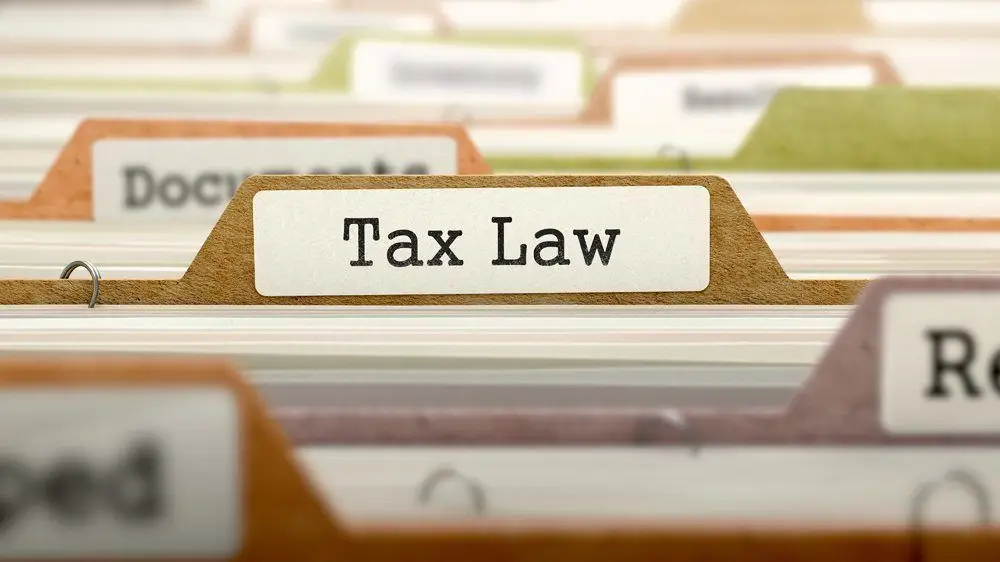Receiving a final notice of intent to levy is a serious and urgent matter, marking your last opportunity to settle the outstanding debt before the IRS legally seizes your assets. While paying the entire debt immediately is the quickest resolution, there are alternative options if you can’t cover the total amount.
In this article, we’ll delve into the details of the final notice of intent to levy, explore potential solutions, and discuss how seeking assistance from a tax professional can lead to a more favorable outcome. Read on to learn more.
Understanding the Final Notice of Intent to Levy

The final notice of intent to levy is the IRS’s last warning, indicating their plan to seize your assets. The IRS can seize assets like cars and homes, business assets, funds in bank accounts, wages from employers, social security benefits, rights to property, and essentially anything beyond your necessities. In other words, the IRS can take almost everything, leaving you with very little.
Before reaching this final stage, the IRS typically sends multiple notices, reminding taxpayers of their outstanding debts and offering opportunities to address the issue. The message will also outline your right to appeal under IRC Section 6330, providing taxpayers with a 30-day window to file.
Receiving this final notice is common for individuals with substantial tax debt or those who haven’t taken steps to resolve it. Acting promptly and appropriately is crucial to avoid assets seized by the IRS.
Identifying a Final Notice of Intent to Levy
A final notice of intent to levy typically includes all the basic information such as the taxpayer information (name, address, social security number, etc.), the amount owed, the tax period for which the debt is owed, payment instructions, the deadline for action, taxpayer rights, and contact information.
The Legal Implications of the Notice
As the official authority for tax matters in the United States, the IRS possesses the legal authority to seize assets to settle a tax debt, as outlined in IRS Code Section 6331. Failing to respond appropriately to the letter can lead to significant repercussions, including the immediate loss of assets, financial disruption, a detrimental impact on your financial reputation, and potential legal consequences such as hefty fines or even criminal charges.
Timeframe and Deadlines
Taxpayers must pay close attention to the various timelines and deadlines outlined in the notice. Begin by checking the notice’s date; this is the starting point for the timeline and indicates the urgency of the situation. Pay special attention to the response deadline, which may involve settling the debt or exploring alternatives, like the right to appeal (which we’ll discuss further in this article).
Adhering to these deadlines is crucial for preventing the seizure of assets and avoiding legal complications.
Immediate Steps to Take After Receiving the Notice

When you receive the IRS’s Final Notice of Intent to Levy, it’s crucial to act immediately, as there are deadlines to meet.
Reviewing the Notice for Accuracy
Start by carefully reviewing the letter to ensure the information is accurate. If you spot any errors, your first step should be to contact the number on the notice or file an appeal. Alternatively, consider seeking professional advice to navigate the process more effectively.
Seeking Professional Assistance
If you have any uncertainties about the Final Notice, it’s advisable to consult with a tax professional. With their experience and knowledge, tax attorneys can guide you through the intricacies of tax laws.
Greenberg Law Group, P.A., specializes in all aspects of tax laws and can help you respond to the IRS’s Final Notice of Intent to Levy, ensuring the best possible outcome for your situation.
Possible Resolutions and Preventative Measures
Taxpayers receiving a Final Notice of Intent to Levy have several options for addressing their tax debt:

Immediate full payment: The quickest resolution is to pay the entire debt immediately. This stops IRS collection activities.
Installment Agreement: An Installment Agreement (IA) is negotiated with the IRS, allowing taxpayers to make monthly payments. Note that the IRS will continue to charge interest, but as long as fees are paid, asset seizure is avoided.
Offer in Compromise: This involves settling the debt for less than the total amount owed. Applying for an Offer in Compromise is complex, so professional help can be beneficial.
Collection Due Process Hearing: Taxpayers have the right to appeal through a Collection Due Process Hearing. You have the opportunity to discuss alternative enforcement options before levy action is taken.
CNC Status: Also known as hardship status, Currently Not Collectible (CNC) status is when taxpayers present a collection information statement. This statement demonstrates that being compelled to pay would cause financial hardship.
To avoid future levies, taxpayers must stay proactive with their tax returns—ensuring accurate and timely filing. Regularly reviewing and addressing IRS letters is essential to prevent issues from escalating. If struggling to pay taxes, initiate communication with the IRS to discuss and establish a payment plan. Lastly, consider engaging a tax attorney to ensure all aspects of your tax matters are handled appropriately and promptly.
The Role of a Tax Attorney in Resolving a Levy Notice
Navigating tax-related issues, especially when dealing with a final notice of intent to levy, is intricate and significant. Seeking the assistance of a tax law expert can not only minimize issues but often resolve and prevent tax disputes for taxpayers. If you want to avoid the complexities of managing your taxes, turn to Greenberg Law Group, P.A. We boast a team of experts ready to guide you through every step of the process. Whether it’s filing your taxes or negotiating with the IRS, we’ve got you covered!
End Note
Receiving a final notice of intent to levy shouldn’t be taken lightly, as the IRS holds the legal authority to seize your assets. To prevent this stage, it’s crucial to take proactive measures, including maintaining diligent tax filing practices and addressing issues early on.
However, if you do find yourself at the final notice stage, a tax attorney can guide you through this intricate process, ensuring you navigate the complexities of dealing with tax issues and the IRS effectively.
For trusted and professional assistance, reach out to our team at Greenberg Law Group, P.A. Our tax professionals are ready to provide the expertise you need. Let us know your specific situations, and we’ll ensure you receive the best available options.




